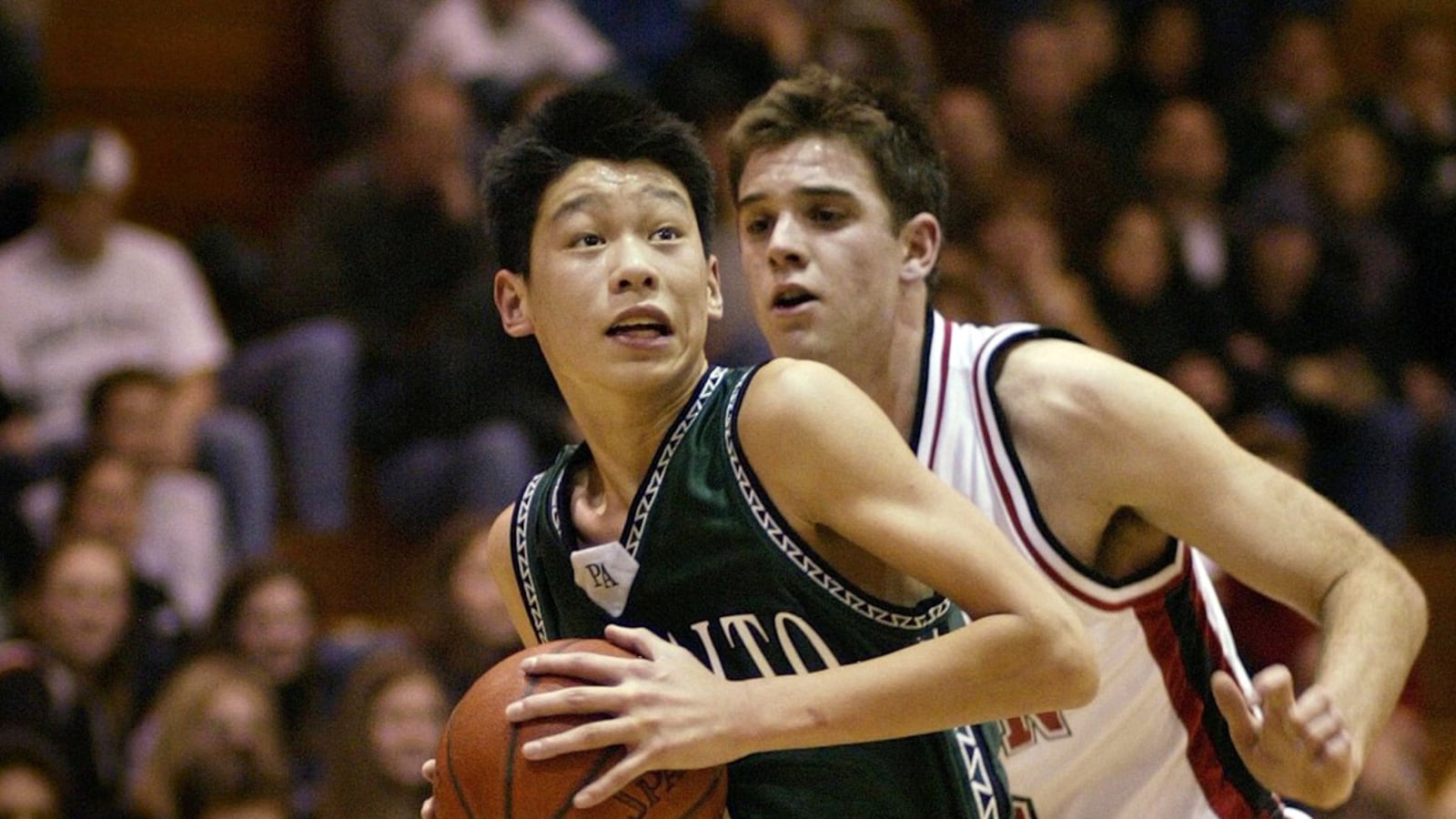Basketball coach Peter Diepenbrock remains close with his former star player Jeremy Lin, who in 2006 led the Palo Alto High School Vikings to a California State championship. Still, Diepenbrock was surprised, and more than a little touched to receive a text from Lin last week wishing him a happy birthday.
At the time only Kobe Bryant seemed unaware of the sensation around Lin, telling reporters not to get ahead of themselves by suggesting that Bryant might guard Lin himself in an upcoming matchup between the Knicks and Lakers. Lin responded by leading the Knicks with 38 of the team’s 92 points in a victory over Los Angeles, giving Bryant a taste of why Lin’s name had been mutated into countless catch phrases: Linmania, Lintastic, Linderella Story.
But the “Linsanity” wasn’t enough to keep the player from reaching out to a former teacher and mentor. A happy birthday text might seem like a tiny gesture, but at the very moment when the whole world wants a piece of Lin, Diepenbrock knows that the unsolicited act of consideration for a longtime mentor speaks more about his former student than any box score. “With all that’s going on, that was pretty moving,” says Diepenbrock.

Diepenbrock himself is feeling a small measure of the demands on Lin’s time. The coach has been flooded by requests for interviews and appearances to discuss Lin. On Sunday, Diepenbrock will be in New York to get a somewhat familiar view of Lin’s talent: the former coach will watch Lin from courtside, just as he did in high school—only this time the gymnasium will be Madison Square Garden.
Before heading east from idyllic Palo Alto, Diepenbrock took some time with the Daily Beast to discuss what it was like to coach Jeremy Lin, before Spike Lee even knew who he was (let alone wore his high-school jersey):
“I first met Jeremy when he was in fifth grade, coming to basketball camp in the summer. Obviously he was very, very small, but a very good player—very good instincts, very good feel—and his leadership stuck out.
"In junior high, everybody knew he was the best player, but the question was how big he was going to get, because he was really small. And so if he was going to get to decent size, even 5-foot-8 or 5-foot-9, he would have been a great high-school player. As it turned out, he got to 6-foot-1, and he became a dominant player in high school.
"His first year on varsity he was good but not great. By his third year on varsity, he really took off and dominated; he led the club to a 63–3 record. The game got very easy for him toward the end of his senior year, when he was in total control, total command on the floor.
"To me, leadership is the ability to say things to your teammates or to others without regard to consequences, and that’s really who he is. Jeremy would just say whatever it took to get the job done, and the guys respected that and followed him. He was always spot on as far as what needed to be done on the basketball court.
"As it turned out, the Ivy League schools were the most interested [in recruiting Lin]. We were really excited at the time to have the opportunity to go to Harvard, and he was really looking forward to the challenge of playing there.
"His strength is really hard to quantify. It’s not like he’s 6’5” or a pure shooter or a really great ball handler. What he is really about is winning and understanding the game.
"Jeremy was a great student. He would have gotten into Harvard whether he was a good basketball player or not. He just had the incredible ability to basically structure his life and organize himself and make sure that he had his priorities straight. I think that with every individual, discipline level off the court translates directly to [one’s] discipline level on the court.
"Here in Palo Alto, we have a very large Asian-American population, so the conversation about Jeremy being Asian-American never came up. Palo Alto is a very progressive area. Every year we have three or four Asian-Americans on the team. But when he went to Harvard, people really started talking about [his race], and I think that’s when this community started to realize it was a significant factor in who he was. But for Jeremy, in his first 18 years, his race was never a major issue.
"He just has an extremely strong will, and he exerts his will on every game that he’s in. At Palo Alto, he did it very well. And then he had the opportunity at Harvard—and became the best player in the Ivy League. And then, fortunately, he had the opportunity to get on an NBA team and get a chance to play. It’s hard to take a guess at how strong a human spirit is. But Jeremy’s is obviously extremely strong.”






